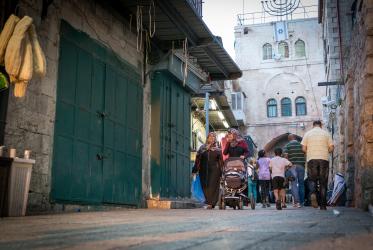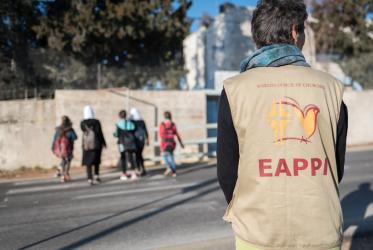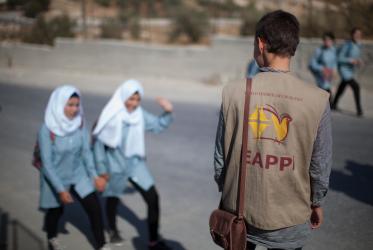Displaying 1 - 14 of 14
WCC reiterates standpoints against antisemitism
20 January 2020
WCC gravely concerned over Israel’s travel ban
09 March 2017
WCC general secretary reflects on peace in Palestine and Israel
20 September 2016
WCC set to observe World Week for Peace in Palestine and Israel
16 September 2016








